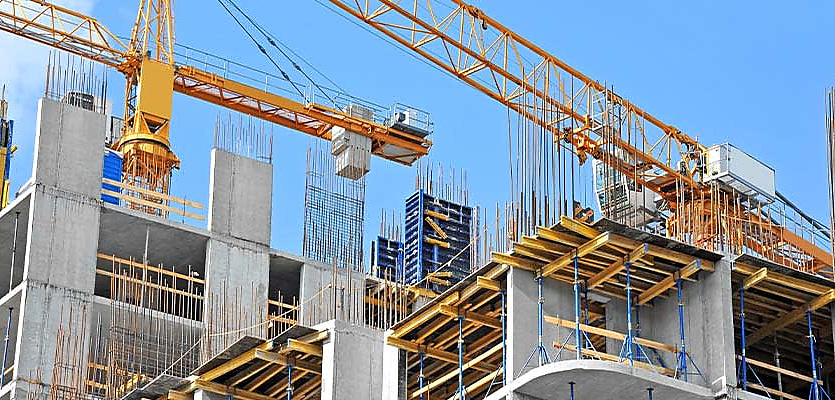The latest quarterly inflation figures are in, now the question remains what the RBA will decide to do at its next meeting.
The Australian Bureau of Statistics’ (ABS) latest Consumer Price Index (CPI) data for the June quarter 2024 has revealed a quarterly rise of 1 per cent and an annual rise of 3.8 per cent.
The main drivers for inflation this quarter were housing (1.1 per cent) and food & non-alcoholic beverages (1.2 per cent), according to the ABS.
Rents and new dwellings purchased by owner-occupiers drove the quarterly growth in housing inflation by 2 per cent and 1.1 per cent, respectively. Further, higher material and labour costs were the contributors behind a 1.1 per cent rise in the construction of new dwellings, following a 1.1 per cent rise in the March quarter.
While the 1 per cent increase over the June quarter was the same as it was in the March quarter, ABS head of prices statistics Michelle Marquardt said: “The annual rise of 3.8 per cent for the June quarter is up from 3.6 per cent in the March quarter. This is the first increase in annual CPI inflation since the December 2022 quarter.”
Annually, the top contributors were housing (5.2 per cent), food & non-alcoholic beverages (3.3 per cent), and transport (4.6 per cent).
Once again, rents (7.3 per cent) and new dwellings purchased by owner-occupiers (5.1 per cent) drove the annual increase.
Meanwhile, the monthly CPI indicator (released at the same time) eased from the 4 per cent recorded in May to 3.8 per cent in the 12 months to June.
Annual trimmed mean inflation was 4.1 per cent in June, down from 4.4 per cent in the 12 months to May.
Where to now for interest rates?
A keen eye was placed on the June quarter CPI figures in the lead-up to the 31 July release.
While many economists believe that the Reserve Bank of Australia (RBA) will not hike the cash rate beyond 4.35 per cent (and instead have predicted the next movement to be a rate cut), the RBA’s expressed vigilance following the previous monetary policy meeting raised concerns.
Judo Bank’s economists Warren Hogan and Matthew De Pasquale referred to the upcoming CPI print as “probably the biggest economic data release of the year thus far”.
“If we get a core inflation number of 1 per cent on Wednesday the RBA will potentially need to hike rates the following week, while a result of 0.8 per cent or lower might see them wait it out,” they said.
Commenting on the data, CreditorWatch chief economist, Anneke Thompson stated that the figures are "unlikely to convince the RBA board that another rise to the cash rate is warranted".
"Demand from consumers has very clearly tightened for some time now, and volatile items are the main contributor to those higher-than-expected monthly CPI releases.
"While the RBA would certainly like to see faster progress being made on the fight against inflation, another increase to the cash rate is unlikely to achieve this, given that households and businesses that would pull back on spending due to higher interest rates have already done this," Thompson said.
Additionally, ANZ economists Catherine Birch and Madeline Dunk said the 2Q CPI data supports their view that the RBA will continue to hold the cash rate at 4.35 per cent at its next meeting.
Freedom Property Investors CEO, Scott Kuru, said that another rate hike is "off the table".
Kuru said "quarterly inflation numbers were the key piece of data we were all waiting on to find out whether the RBA would put up rates for a 14th time at their August board meeting next week.
"With inflation pretty much in-line with the RBA’s own expectations, it’s clear there’s no justification for another rate hike this cycle."
Kuru also stated that mortgage holders "suffering under the pressure of high interest rates" will be "breathing a bit easier" with the assurance that their variable rates could be lower by this time next year.
Westpac chief economist, Luci Ellis, said that with inflation being in line with expectations, despite a "shade below on some key measures", disinflation is on track and therefore see another hold until November with rates "likely to decline from then".
"Given the sub-consensus inflation outcome and the run of other data confirming that domestic demand growth is soft, we affirm our November call for the first rate cut, with more conviction than previously.
"We note, however, that the Board is not in a hurry to cut given lingering inflation risks. It is plausible that the Board will retain the ‘not ruling anything in or out’ language in its post-meeting communication," Ellis said.









You are not authorised to post comments.
Comments will undergo moderation before they get published.